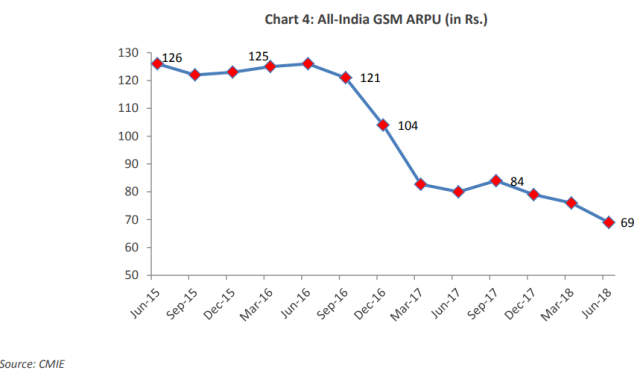The Telecom Disputes Settlement and Appellate Tribunal (TDSAT) has quashed the order of the Telecom Regulatory Authority of India (TRAI) on predatory pricing and discounted tariffs.
 Vodafone Idea and Bharti Airtel, two leading telecom operators in India, had challenged the amendment made by TRAI in the Telecommunication Tariff Order (TTO) in March 2018.
Vodafone Idea and Bharti Airtel, two leading telecom operators in India, had challenged the amendment made by TRAI in the Telecommunication Tariff Order (TTO) in March 2018.
TDSAT said TRAI cannot impose penalty, and has asked the telecom regulator to reconsider the provisions within the next six months.
TRAI in February said it would impose financial disincentive of up to Rs 50 lakh per telecom circle on mobile operators if their service rates are found to be predatory in nature.
“TRAI shall keep all the relevant facts in mind while dealing with the matter in the light of this order of remand of the issues relating to non-predation and SMP (significant market player). The interim order is made absolute,” the TDSAT Bench comprising Justice SK Singh and member AK Bhargava said in the order.
The amendment was issued after incumbent operators — Bharti Airtel, Vodafone and Idea Cellular — moved the court alleging that the new entrant Reliance Jio is offering services at predatory rates.
TRAI’s rule considered a tariff predatory if in a relevant market a telecom operator with over 30 percent market share offers services at a price which is below the average variable cost, with a view to reducing competition or eliminating the competitors.
TDSAT said if a new entrant needs to be protected from the rigours of non-predation, it can be done through provisions like welcome offer and promotional scheme as availed recently by Reliance Jio.
These can be formalised as just exceptions but to allow freedom from requirements of non-predation till acquisition of 30 percent total activity in a given market prima facie appears to be an extreme step and unnecessary abdication of its regulatory powers by TRAI in the context of tariff conditions and their enforcement,” TDSAT said.
With exceptions, the tariff conditions should generally be applicable to all service providers uniformly, TDSAT said.





